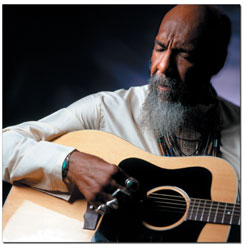|
|
||
|
Voice of the times
by Jeff Mannix he 1950s unleashed a new America, derived from a long, popular war that cut through any lingering hint of Victorian culture. Men by the shipload were coming home triumphant after being exposed to European and Asian cultures; women, who had taken over production jobs in the States, had newfound confidence and were ready to join their returning husbands to forge a shiny, new beginning. It was a time of change, marking enormous shifts both social and civic. Music, film, fiction and fashion all raced to keep up with the trending prosperity and national pride. Then came the explosive ’60s and the Vietnam War. College kids took to the streets to protest for peace. Beatniks questioned authority. Cops and politicians were awakened from their stupor, and new counterculture music spread the unrest and coalesced the noisy majority. The cultural revolution of the 1960s changed the world, ended a war and began a wave of consciousness that incubated our present environmental sensitivity. The phenomenal change in attitude across every college campus in the nation was tenacious, hard won and invigorated by the folk music of Dylan, Joplin, and Peter, Paul & Mary, to name a few. Then, Aug. 15, 1969, in rural New York, the world made a quantum leap with the Woodstock Art and Music Festival. Fortunately for local audiences wanting to relive that leap, or make it for the first time, Richie Havens, the man who opened that legendary festival, will play the Community Concert Hall this Sat., Dec. 15, at 7 p.m. Known as one of the most influential voices of the 1960s counterculture, Havens continues to foment change even today. “We moved to a different time zone – ‘Now,’” chortles Havens, speaking of the ’60s from his home in New York City. “I was 20 years old when I went to Greenwich Village to recite poetry and paint portraits, then I’d spend all night long in the clubs. It was hap pening; there was movement. A giant was waking up.” In one of those clubs, Cafe Wah, Havens was noticed by the legendary Freddy Neil, a meteorite who burned out fast but not before leaving a wondrous trail for all of folk music. “I knew all the words to his songs, and I’d be sitting up in one of the first rows every time he was performing,” Havens remembers. “One night, Freddy came down to me after his show and put a guitar in my hands and said, ‘You know all the words to my songs, kid, so take this and learn how to play it by next week.” In disbelief but dutiful, Havens followed orders and took the guitar home. As luck would have it, he discovered that the three chords he knew were the base of all the songs. “I went back to the Village … and the great Fred Neil invited me up to the stage to sing with him,” Havens remembered. Neil went on to do the same thing with Bob Dylan a few years later. It seems Havens was star crossed. He got another boost in confidence and exposure that year from fellow folk luminary Chester Powers, aka Dino Valenti. A contemporary of Neil’s, he was credited with penning the oft-covered, “Let’s Get Together,” later made famous by the Youngbloods. All this was a far cry from Havens’ formative years in Brooklyn. When he was 14, he sang in a “doo-wop” group that performed a cappella on street corners for tips and fun. It was the end of the zoot era, and for Havens, the launching pad that eventually thrust him into clubs, college campuses and huge outdoor music festivals around the world. Havens has gone on to perform at the Newport Folk Festival, Monterey Jazz Festival, Miami Pop Festival, the Isle of Wight Festival, the Glastonbury Festival and, of course, Woodstock – kept on stage at all of them well beyond his allotted time with encore after encore. He was held captive at Woodstock for three hours, and finally, running out of songs, improvised a version of the spiritual “Motherless Child,” which turned into “Freedom” – his signature song and the anthem of a generation. “I’m not in show business, I’m in the communications business, and I only sing songs that move me,” he said. “Songs choose me, I don’t look for them. And when I get on stage, I have only the opening and closing song in mind – the rest of the set comes to me from my audience.” After 38 years, Havens still tours incessantly. Though he has 25 albums to his credit as well as an appearance on the “Ed Sullivan Show,” a performance for The Dalai Lama, and the distinction (with Barbra Streisand) of being one of only two performers invited back for a second night by Johnny Carson on the “Tonight Show,” he said he still needs the fellowship of humanity to find joy in his art. “My songs are meant to be a chronological view of the times we’ve come through, what we’ve thought about it, and what we’ve done to grow and change,” Havens writes in his 1999 book They Can’t Hide Us Anymore. “There’s a universal point to which we all respond, and where all songs apply to everyone.” •
|
In this week's issue...
- December 18, 2025
- Let it snow
Although ski areas across the West have taken a hit, there’s still hope
- December 18, 2025
- Look, but don't take
Lessons in pottery theft – and remorse – from SW Colorado
- December 11, 2025
- Big plans
Whole Foods, 270 apartments could be coming to Durango Mall parcel


